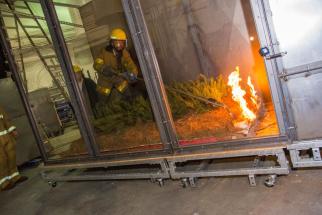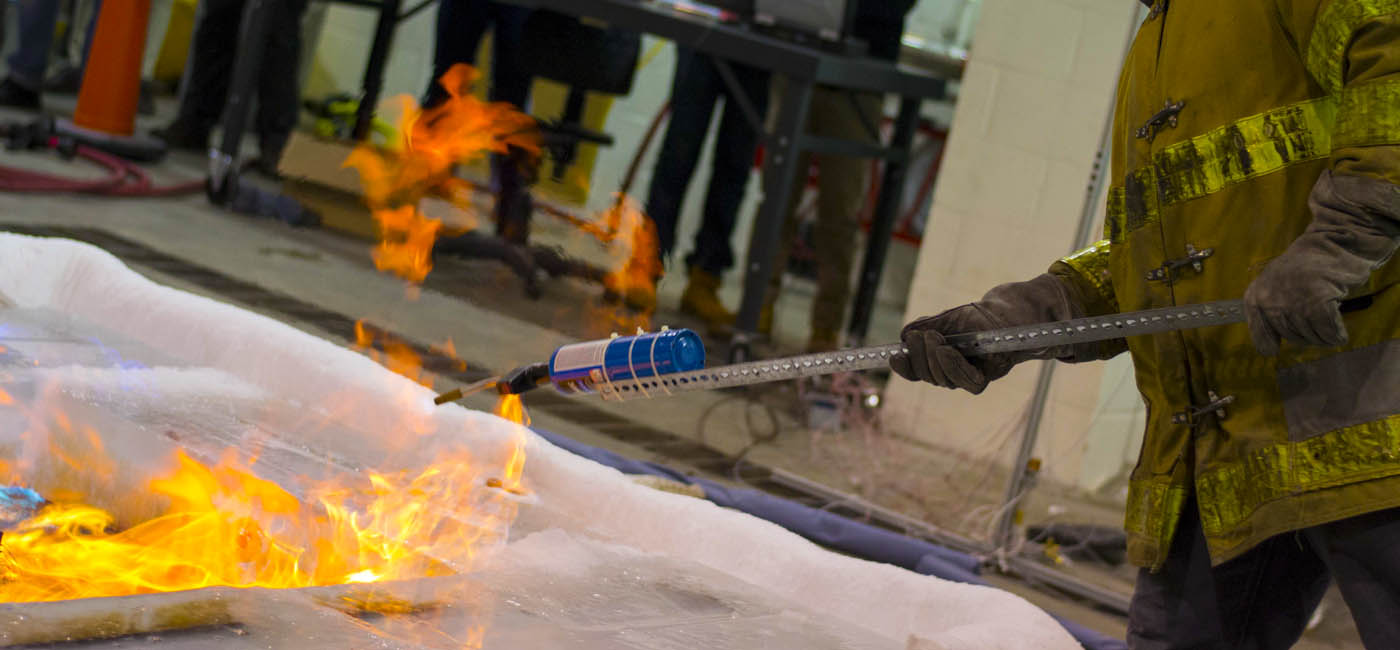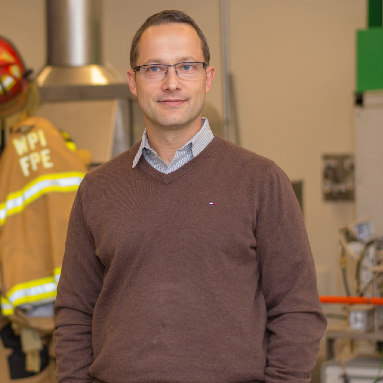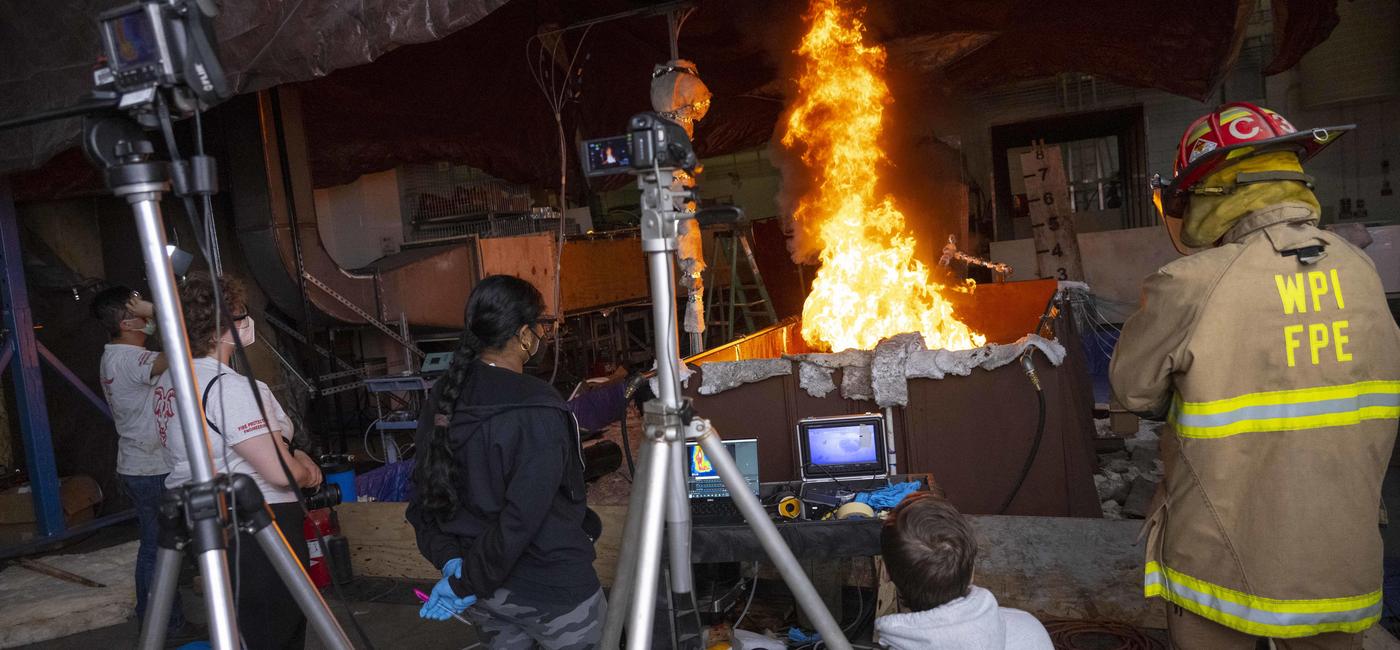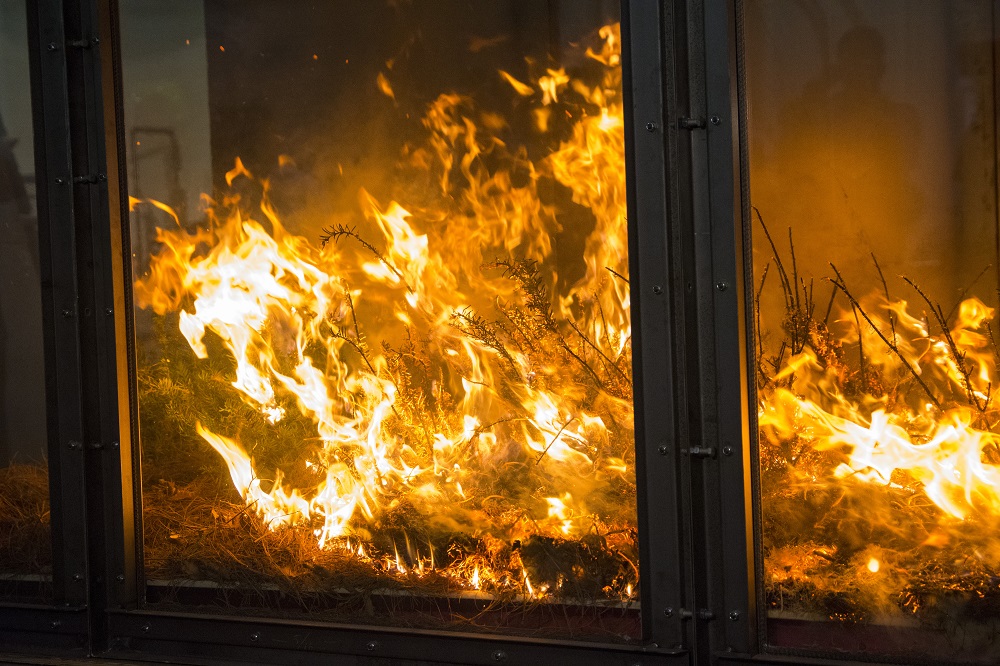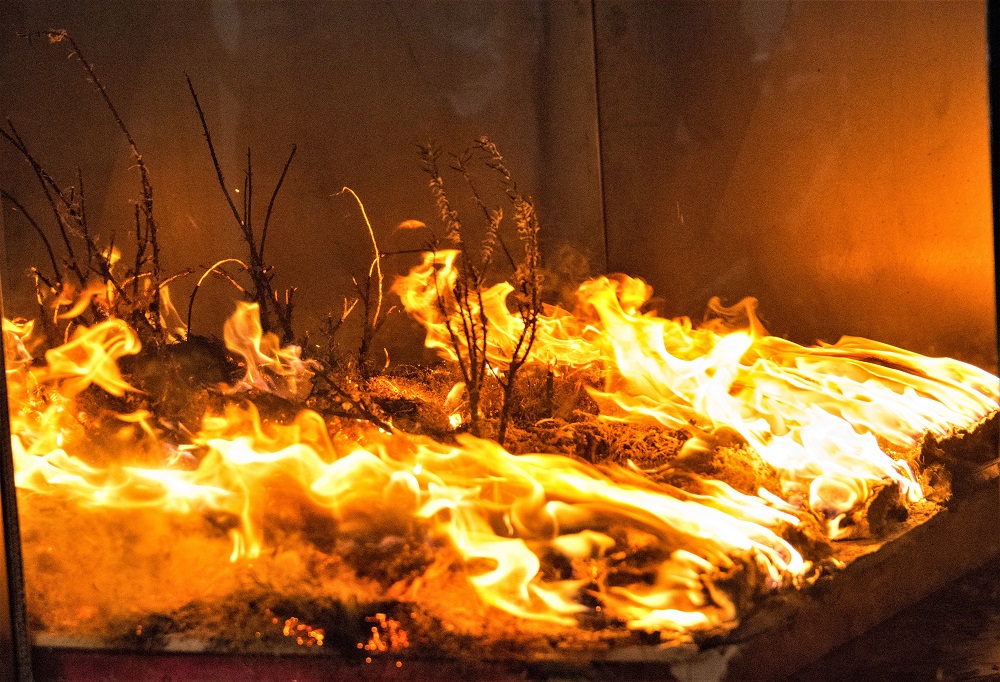Over the past 22 years, wildfires in the United States have caused damages exceeding $100 billion, and as climate change continues to intensify wildfire frequency and severity, research is essential to protect lives, property, and ecosystems—and to help communities adapt to these changing conditions. To this end, the National Science Foundation (NSF) has added Worcester Polytechnic Institute (WPI) to its Wildfire Interdisciplinary Research Center (WIRC), a collaboration between universities and industry. Supported by a three-year, $450,000 grant with additional direct funding from industry partners, WPI will build upon its longstanding expertise in fire protection and work with San Jose State University to study new fire detection methods, robotics solutions to enhance first responder safety, and fire suppression systems for wildfires.
“The solutions to our current wildfire issues are going to require creative thinking across multiple sectors and disciplines,” said Dr. Kendra McLauchlan, Program Officer at the National Science Foundation and chair of the NSF Wildland Fire Initiative Working Group. “This is exactly the approach taken by WIRC, and the new site at WPI adds some really exciting capacity. We are looking forward to the innovations this industry-university partnership is able to achieve.”
